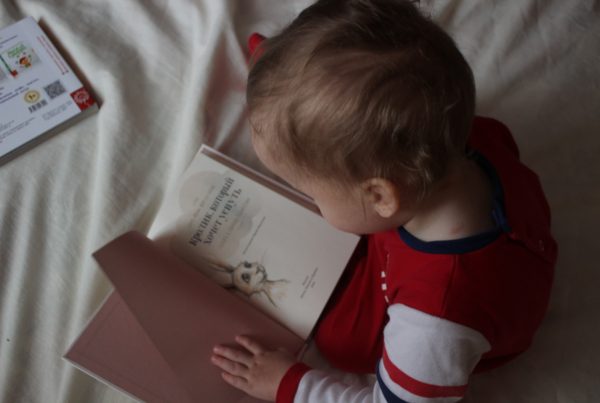As young boy I always felt the ethical position. Not because I had actually heard of the word. It was very simple – do what is right.
However the choice – to do what was right- rarely ever came into consciousness. As with all young people you operate on automatic pilot so you could be offending someone, being rude or even picking on them without even really knowing that was what you were doing.
Then suddenly it would come into focus. Stop saying that! Stop hurting me! Or worse, crying, or descending into all out verbal abuse. Occasionally all out wrestling would break out.
We always had a distinction between a wrestling tussle and a fight. A fight was true -fists in your face.
The other way was to be in front of an adult, being confronted. Did you do this? Yes sir/mam. Punishment – apply liberally – experience humiliation, pain, regret, sorrow – pick up and move on.
The ethics came to the fore when dealing with kids who were clearly at a disadvantage. The disadvantage was usually social, physical, sometimes intellectual sometimes just something that said, “adjust your standard operating procedure here”.
Bullying was endemic and a fundamental right of passage. It gave leave to budding psychopaths, criminal minds and fear based behaviour all over the place. However the context or setting was a redeeming one. The teachers and the school gave solid foundation for sound moral development and judgement. My family more so.
People who were genuine leaders ran the bigger system of the school and you knew most of them cared.
I always had that feeling deep inside me that pushed me to intervene when peers, or more junior kids were being trashed. I also understood that kids who I had never seen were worse off than me – much worse off – and this was an important reference point.
I was a stickler for the rules. I broke them regularly. The ones I broke tended to be the ones more about procedural correctness, which I never considered too much for my self.
But when confronted I owned up. I guess this was my homage to the fact the operators of the rules (the leaders) were people I respected. Therefore the rules needed to be respected.
The ethics were clear. Accept responsibility for your actions. Do not hurt others and if you do, own up, and try to make it right (figuring out why you hurt them in the first place came later in adult life). Also don’t dob on others.
In my past work life ethics came up rarely. The idea that there would be an explicit dialogue about ethics never really seemed to arise. Ethical considerations were always implicit.
This is not to say I did not attend and run workshops on ethics. These however were about compliance – not an actual daily dialogue about ethical positions and assumptions.
I recall being involved in the first systematic restructuring of the National Australia bank a few years after NAB had been created by the merger of National Bank of Australasia and Commercial Banking Company of Sydney. I was located in the Head Office in human resources at the time and was very junior. I was asked if I could help – yes that’s right I was asked! Of course I said I would do what ever they needed.
The sheer angst that reverberated through the floors of the Head Office was extraordinary. There was explicit conflict within the board that was commented on by my colleagues in hushed tones. Should they approve the first formal group wide redundancies or no? In the over 100 years existence of the two merged entities this would be a first.
This seemed to go on for weeks. We had all the plans ready to implement, then it would be off and then on again. Ultimately it proceeded.
My experience was sitting down with 50 year old plus men who had been Bank Managers all their life (and others) who were brought in and met with me (and my very specific script) and were told they were no longer going to have a job. These were difficult. Their pain, anger, sheer sense of loss and bewilderment was challenging.
The most difficult meeting was with a young woman who proceeded to explain to me that she was single mother who looked after her parents and was the only income earner.
I have never forgotten this young woman. She was a good performer according to her file and as far as I can remember the only woman in the number of people I was responsible for during those retrenchments.
So the ethics show themselves. The decision is made to reduce people costs because it is felt that it is needed for the betterment of the organisation. i.e. for shareholders. Sets of rules have been developed to support the decisions implementation and ultimately the implications for individuals are outweighed by the benefits for the organisation.
I don’t know what happened to that young woman, her child or her family. I like to believe in my heart that she bounced back and with her skills and attitude moved on to better things for herself and her family. However I know that many less reassuring options existed.
And so ethical frames of reference develop as we experience the world and hopefully reflect on our own feelings and thoughts at the time of making decisions.
Initially it is the ethics of self.
- Self – What are my emotions and what do I need to do to meet my needs, quiet my emotions and move on. These motivations are unconscious but easily brought into awareness.
- Family – Ethics evolve to consider family, friends and close relationships. Will I apply the law or protect my family?
- The tribe – the tribe might be a gang, a club, or a school group. What will I sacrifice of myself to support the tribe and fit in? Classic justifications include – “everyone else does it ”.
- Considering work and organisations. This might include the ethics or rules of a profession, with requirements to demonstrate standards and prerequisite knowledge. Often in our organisations it is about status, power, recognition, how these are earned and who has access to be even considered.
- Then society. We awaken and perceive the broader human social system we live in. The ethical seeds of which have been with us through all of our development but now this awareness begins to dominate our thoughts. What is healthy for our community? How come many people suffer in my society? How can I serve to improve our society? Considerations of human rights and who is included and excluded come to bear in our thoughts and feelings.
- The environment. What are we doing to the limited resources we have? There is a limit to what can be consumed and exceeding that limit is bad for other species and humans. Why do we run our society in a way that allows organisations to destroy parts of the environment? We are connected to our atmosphere, water, earth in ways that need to influence the decisions we make and the way we live.
- Level 7 is about the planet and is integral. We now see that all previous ways of responding to ethical challenges are valid from the point of view of the individual at that time and with their worldview. We work to ensure that these ways are validated as essentially human and built onto to adopt practices supportive of the planet and all who inhabit her. We are integrating not suppressing others views because we understand them as we see our own development through time. What is good for the planet is good for us humans.
Level 1 to 4 ethical considerations are very much in the realm of self and fear or needs deficiency motivations that are generally unconscious. The level 5 to 7 are more about service to others i.e. ethics that transcend self and work considerations that are active in awareness.
Levels 5 to 7 are very much Who am I? How can I improve or serve the world and issues emerge for us and are dynamic as we are confronted by different situations with different levels of intensity and time frames.
These levels of ethical considerations are built on the back of the work of Richard Barrett, Clare Graves and Ken Wilbur. All of which have enlightened our understanding or how we develop our consciousness (awareness) and the dynamic nature of such development.
Many leaders and organisation are operating across levels 4, 5 and becoming aware of 6. This can lead to confusion, frustration and a sense of powerlessness to get teams and organisations unstuck as the world views of the solutions proposed come from conflicting levels of awareness.
BRAKTEN CONSULTING will help you articulate your ethics , values and build generative governing that will bring to light your personal narrative for the business, connect to the values of your people, and assist in aligning workplace values with the aspirations of your workforce.




